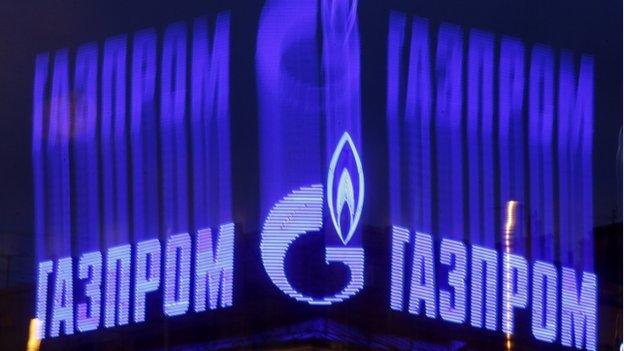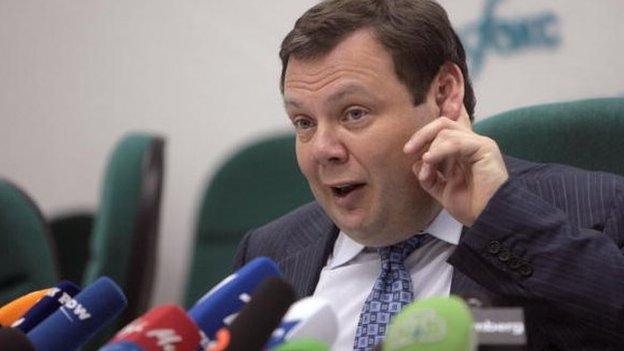Gazprom: EU to file anti-monopoly charge against Russian firm
- Published

European Union regulators are likely to set out anti-monopoly charges against Russia's energy giant Gazprom on Wednesday, according to reports.
State-controlled Gazprom, a major gas supplier to Europe, is expected to be accused of overcharging some buyers.
The move against Gazprom could further sour relations with Moscow, which have suffered over the Ukraine crisis.
Brussels began investigating Gazprom three years ago, but Moscow says the action is politically motivated.
According to the Financial Times and several news agencies, the EU will officially complain that Gazprom is hindering competition in the central and eastern European gas markets, where the company benefits from a dominant position.
Countries named in the EU's formal statement of objections are expected to include Poland, Czech Republic, Hungary, and Bulgaria.
Fines
The EU had been accused to delaying action against Gazprom for fear of inflaming relations with Russia. But the EU's new anti-monopoly chief, Margrethe Vestager, appears to be taking a tougher line.
Her move comes just a week after she charged the US technology giant Google with abusing its market power.
The new regulator's tougher stance "is sending a message that her mandate is not about settling cases. If she has a solid case, she will push ahead with charges", said Mario Mariniello, a former economist at the EU and now at the Brussels think tank Bruegel.
"Sending a statement of objections to Gazprom now would be her way of saying that she will focus on the substance of the case regardless of the political implications," he said.
Russia supplies about a third of the EU's gas requirements, with half that amount going through pipelines that cross Ukraine.
Once the EU's statement of objections has been filed, Gazprom would have three months to respond.
Brussels' competition authority has the power to impose fines of up to 10% of Gazprom's global turnover.
- Published20 April 2015
